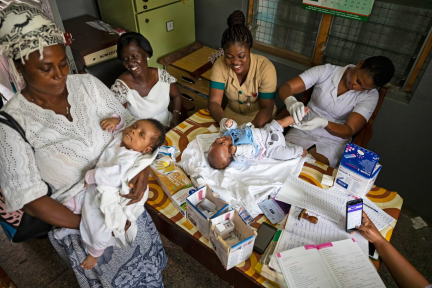Adapting business models to tackle access barriers and increase product reach
Date
15 November 2022
GSk, Pfizer and Sanofi
Global
Creating new models to offer pipeline and portfolio products in low- and middle-income countries (LMICs) at affordable prices
To increase the availability and affordability of medicines and vaccines among poorer populations

Three companies lead in evolving strategies to cover a broad range of treatments in LMICs, helping to ensure patients have access to essential and life-saving medicines at affordable prices.
Of Sanofi’s four strategic pillars, two (Affordable Access and Vulnerable Communities) prioritise access. In April 2021 Sanofi unveiled its new strategy with the creation of Sanofi Global Health (GHU), a non-profit unit dedicated to increasing access to essential medicines in the poorest countries. Through GHU, the Impact® brand was launched, which is a new brand of standard-of-care medicines for non-profit distribution to at-risk populations. Impact®, which includes insulin, glibenclamide and oxaliplatin, will allow Sanofi to distribute 30 of its medicines to 40 lower-income countries, addressing conditions including diabetes, cancer, malaria, tuberculosis and cardiovascular disease. SGH has also established a global health impact fund to support start-up companies and innovators to deliver scalable, sustainable health solutions in underserved regions. The aim is to provide access to a broad portfolio of medicines, covering a range of therapeutic areas, in many countries while also strengthening local health systems and funding local support programmes and businesses.
GSK announced in June 2021 that it wanted to positively impact more than 2.5 billion lives over the next 10 years, including 1.3 billion people in LMICs. Having spun off its consumer healthcare business, ‘New GSK’ covers infectious diseases, HIV, oncology and immunology, aims to lead in Environmental, Social, and Governance (ESG) and focuses on six areas including pricing/access and global health.
A dedicated global health group, established in August 2021, now reports to the company’s chief global health officer. This measures success in health impacts, such as patient reach and progression in developing medicines and vaccines targeting priority neglected diseases and infectious diseases in lower-income countries. GSK has since announced a 10-year investment of GBP 1 billion to accelerate R&D in infectious diseases that disproportionately affect lower-income countries. Separately ViiV Healthcare, which is majority-owned by GSK, created a global health and access forum to focus on governance for access-related discussions across its portfolio.
Pfizer announced An Accord for a Healthier World in May 2022. The initiative aims to create sustainable, equitable access to high-quality healthcare for up to 1.2 billion people. Pfizer commits to providing all 23 of its patent-protected medicines and vaccines (and future products) to 45 low- and lower-middle-income countries on a not-for-profit basis, to treat and prevent diseases such as COVID-19, pneumonia, meningitis, cancer and inflammatory and rare diseases. Five countries (Ghana, Malawi, Rwanda, Senegal and Uganda) quickly joined the Accord, and Rwanda received its first shipment of 1,500 treatment courses in August 2022.
Pfizer commits to fostering collaborations to address factors that limit access, including diagnosis, education and infrastructure. For example, Pfizer and Rwanda’s Ministry of Health are providing healthcare workers with professional education and training. Pfizer is also exploring partnerships to support Rwandan medical specialists and diagnostic enhancements, and to establish a telemedicine consultation platform to connect healthcare professionals in Rwanda with global experts.
Increasing access through a widened scope
People at the base of the income pyramid are frequently overlooked for access to medicine. Sometimes companies focus on only a narrow range of countries (e.g., upper-middle income countries) and/or products (e.g., those targeting communicable diseases). Companies can address this by widening their scope while increasing specificity, considering how to help the world’s most vulnerable populations by examining all relevant means to make essential medicines more available and affordable.
